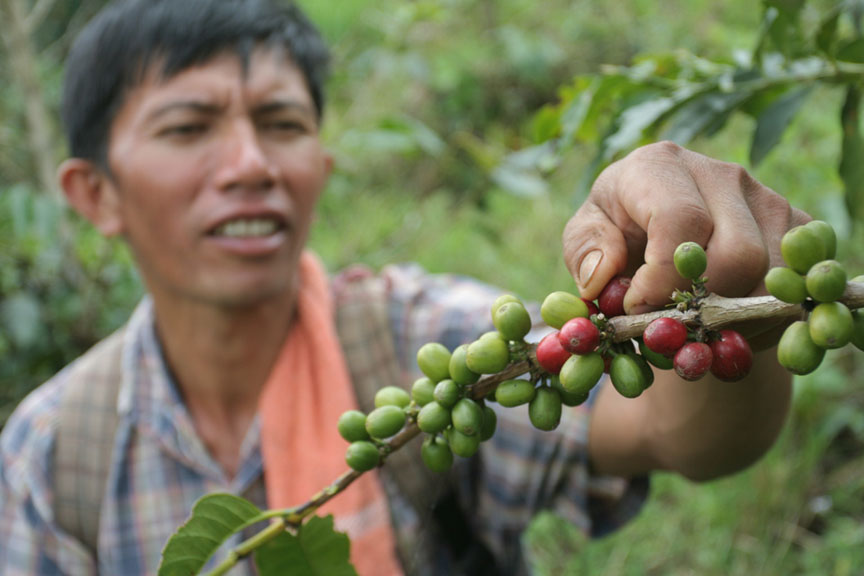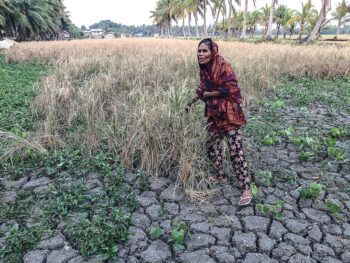 Picking red cherry coffees in Bansalan, Davao del Sur. MindaNews file photo by BOBBY TIMONERA
Picking red cherry coffees in Bansalan, Davao del Sur. MindaNews file photo by BOBBY TIMONERA
DAVAO CITY (MindaNews/ 05 September) – Coffee growers need to develop a “culture of transformation” on good agricultural practices to reverse the production downtrend in Davao Region, the president of the Davao Coffee Council said.
Council president Joji Pantoja said it took them three years to make coffee farmers in one community change their system due to their “bondage” to the old system of production.
Data from the Philippine Statistics Authority (PSA) showed the country’s coffee production had been declining. From 75,454 metric tons in 2014, it decreased to 72,341 MT in 2015, 68,822 MT in 2016 and 62,077 MT in 2017.
The region’s share of the 2017 production nationwide was 17% or 10,839.95 MT, consisting of Arabica (2,200.47 MT), Excelsa (1,258.09 MT), Liberica (75.47 MT) and Robusta (7,305.92 MT), according to PSA.
Pantoja, also president and chief executive officer of the Coffee for Peace, said they encourage the government to put in place a monitoring mechanism to track the progress of the seedlings distribution of the Department of Agriculture and employ a geo-tagging method of the locations of the coffee farms to determine the origin.
“When you planted the trees, it would tell the point of origin where the trees are planted, the elevation. In that way, it would be easier to identify this kind of coffee that produces this taste profile,” she said.
Pantoja added the growers must be equipped with knowledge on proper growing practices.
“It has been distributed with the farmers but without proper knowledge how to care for the coffee. Those distributed coffee trees will be sitting in the backyard of coffee farmers. It’s not planted. We cannot base on the statistics on just the distributed, we really have to check and monitor. Was it planted? How is it producing?” she said.
She added they encourage coffee farmers from different regions to create councils so we can “appeal to our government to set up funds to improve really our coffee industry.”
She said the private sector needs the support of various government agencies such as the Department of Environment, National Commission on Indigenous People, Department of Science and Technology, local government units and DA to improve the industry.
Melani Provido, regional High Value Crops Development Program coordinator at DA 11 said the government trains the farmers in good agricultural practices including fertilization, pruning, cultivation and post-harvest processing.
Pantoja said they visited three cooperatives in the region. They found out that each has in-house Q-graders that determine the quality of coffee.
She emphasized the need to teach farmers on flavor profiles to meet the requirement of the buyers and command better prices for green coffee beans.
She said there would be a bean grading competition and coffee tasting session during the Davao Agri Trade Expo (DATE) on September 20 to 22 at the SMX Convention Center Davao. (Antonio L. Colina IV/MindaNews)
